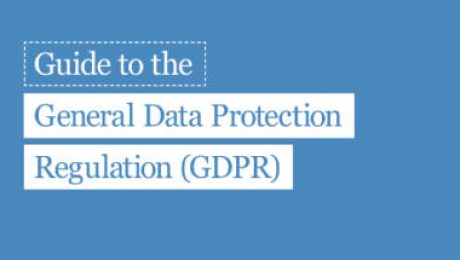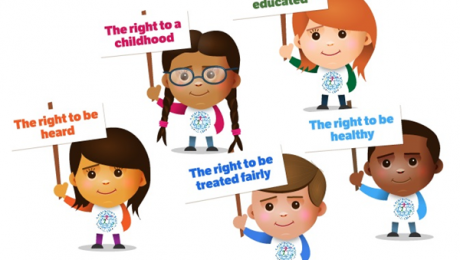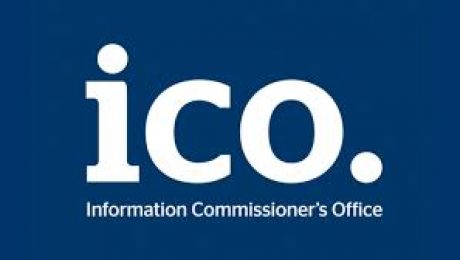ICO Guidance on access to records published
Guidance from the Information Commissioner’s Office about responding to an individual’s asking to see what personal data an organisation holds about them
The ICO in October 2020 issued guidance about how organisation should respond to a Subject Access Request. The link is here:
ACRCG responded to the consultation in detail (see our previous post with a link to our response to the consultation), and we are pleased that points we made have been taken up. Although the guidance is not specifically designed to meet the rights of adult care leavers, it has some useful messages for organisations to take on board.
Key messages in the guidance:
- it is a fundamental right of all individuals to know what personal information [data] the organisation holds about them
- a request for this information does not have to be in writing: organisations cannot insist on this but it may be useful to record that a request has been made
- the organisation cannot charge a fee and must provide the personal data within 20 working days
- names of person recording personal data about an individual in a professional capacity should be shared with the individual making the request.
We had made this point very strongly because it is most important and here’s the example given in the guidance:
“….it is reasonable for the council to provide the social worker’s personal data to the requester in response to the subject access request. However, the council must either have the consent of the family member, or consider whether it is reasonable to disclose their personal data without consent. If the council does not have consent, it is likely that it needs to reconcile the individual’s right of access in respect of any duty of confidence owed to the family member.”
It remains to be seen, of course, how the guidance will be interpreted by individual local authority departments and will, no doubt dictate further attention by our Association.
- Published in General
Government consult on care leavers experience of unregulated accommodation.
The government wants to know about care leavers’ experiences of living
in accommodation such as B&B, cheap hotels or hostels, where there are
no clear rules about the standard of the accommodation and the supports
for people placed there by the local authority. A number of key groups
working with adult care leavers and young people in care are demanding
that the government takes steps to make improvements to this unregulated
sector. The link below to the Article 39 website has more information
about this to enable you to contribute to the consultation. ACRCG
supports the groups working on this consultation and Care Leavers
Association is leading this work.
- Published in General
Defend children’s rights in care – scrap S. I. 445
ACRCG supports the many groups working to challenge the Government’s
action to suspend key fundamental rights and protections for children
and young people and adult care leavers.
The Government claims that the social care sector was demanding these changes to deal with the impact of the Corvid -19 pandemic as a matter of urgency. However, many groups representing children, young people, their families and adult care leavers were not consulted. There was no scrutiny or debate in Parliament about the changes. The Government has said that the changes will be in place until 25 September 2020 but it is possible that they could be extended. These significant changes erode and remove key
rights and protections. We join with the groups, including Care Leavers
Association, to demand that the Government withdraws the Regulation
which made these changes.
- Published in General
Announcing the launch of the Family Connect Website
Family Action’s FamilyConnect website is a new resource for adults who have been in care and or adopted. The information on the website is to assist them in finding answers to questions they may have about their origins, to help them on their journey to locate records relating to their adoption and care that may exist, and also to find birth family members.
The Family Connect website available at:
https://www.familyconnect.org.uk
It is planned that in due course the Family Connect website will be further developed to include information for birth relatives, professionals, and also for donor-conceived people providing funding becomes available. The website will be reviewed regularly so please let Julia Feast know if you spot anything that could be added or amended: Julia@feastconsultancy.co.uk
- Published in General
Information Commissioners Office consult on draft right of access guidance – ACRCG Response
Since the Data Protection Act 2018 was made law in May 2019, it has been necessary to publish guidance as to how its terms should be implemented, and, for instance how discretion ought to be exercised in order to provide good practise to the Data Subject. Our interest, of course, is limited to those who are, or were previously, in care, whereas the proposed guidance is of wider application to all.
The Information Commissioner’s Office issued a consultation for views on what form the guidance on access to records should take. One can read the consultation by clicking here
Although the guidance was going to be of general effect and not especially related to Care Records with their peculiar issues, we, as a Group, wanted to ensure that it took account of the special issues which those in care, and care leavers face when trying to access their records.
To read our response to the Guidance, you can read our whole response document by clicking the link below. In particular we made the following bullet points as well as provding detailed comments on the specific sections:-
“The issues that these people face include:
- defensive redaction of information particularly third-party information, often information which is already known to them
- defensive exercises of what should be an enabling discretion to provide third party information – both in decision making about getting consent from the third party and sharing that information without consent
- failure to understand what information on care records is not ‘protected’ information
- an overuse of the ‘serious harm’ test to withhold information, sometimes not properly informed by professional health advice about the individual’s current health and circumstances
- lack of sensitivity about explaining language, terms or professional jargon used in documents in their case file: this is particularly so for older adult carer leavers who are distressed by terms used
- lack of support to the individual during the SAR process and after their care records have been shared.”
Click here to read our response of a PDF File.
- Published in General





